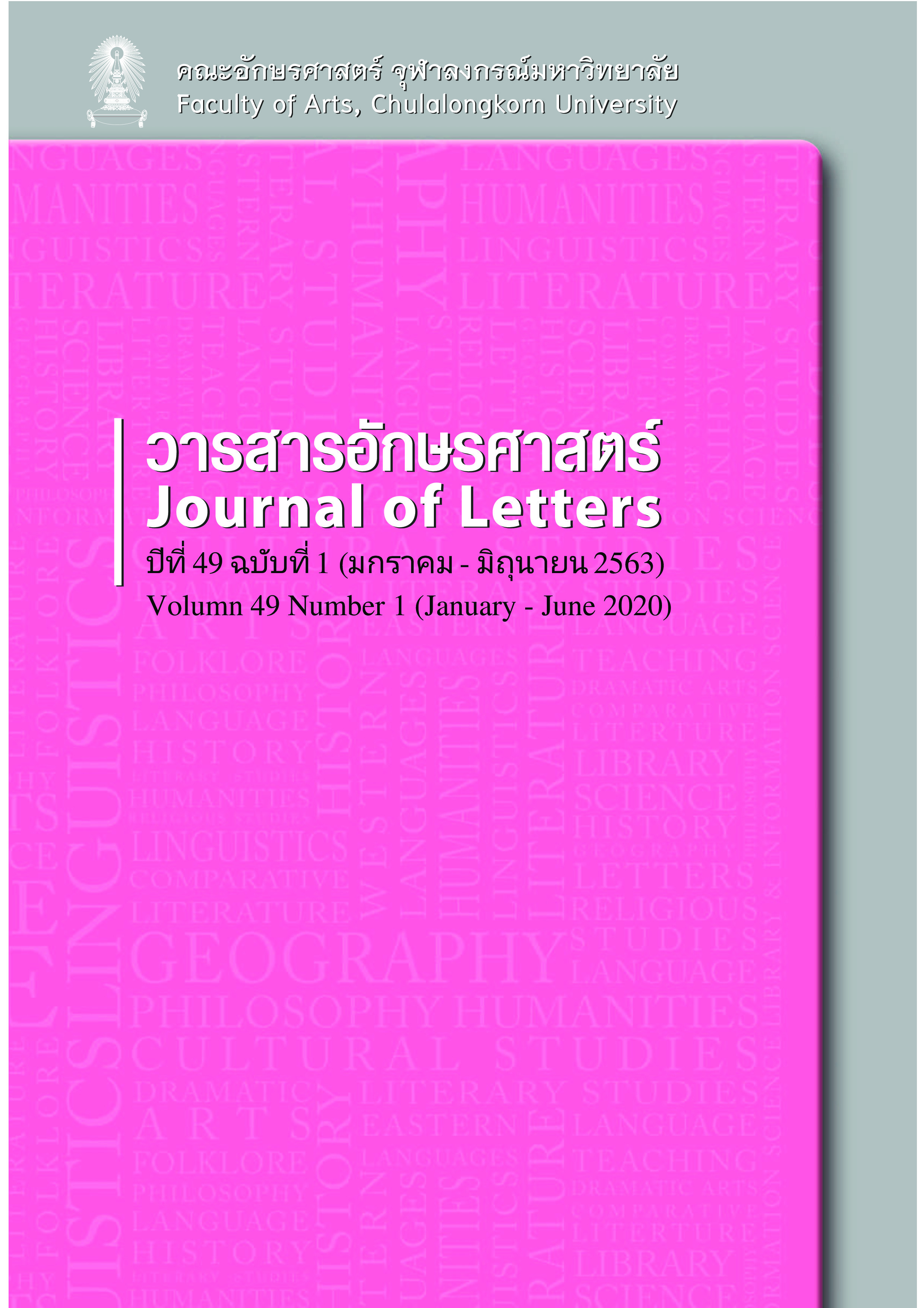A Study on the Mutual Cultural Development of Korea and Thailand through the New Southern Policy
Keywords:
New Southern Policy, Korea, ASEAN, Korean Wave, win-win cultural developmentAbstract
Korea's current administration introduced to the New Southern Policy in 2017, with the vision to create a "people-centered community of peace and prosperity" with the ASEAN countries. Thailand is the central hub for Korea to strengthen and expand its regional soft power as the largest consumer market for Korean culture, represented by Hallyu. However, despite the close ties between Thailand and Korea, the economic cooperation between Korea and Thailand has been stagnant compared to other ASEAN countries.
In this context, this study analyzes whether the New Southern Policy is an effective policy to enable a win-win cultural development between Korea and Thailand and highlights the two countries' cultural collaboration as an essential cornerstone for economic cooperation, specifically focusing on Korea's Hallyu policies before and after the New Southern Policy and their impact on the status of Hallyu in Thailand.
Under the New Southern Policy, Korea has been seeking to strengthen its soft power and promote mutual prosperity through a bilateral cultural exchange, rather than a one-way expansion of Hallyu. It is possible to anticipate that prioritizing the co-prosperity of Korea and Thailand through active cultural and people-to-people exchanges will foster a win-win cultural development of the two countries.
References
Choi, Chang-yoon 최창윤. 2019, June 12. Hanlyu kontencheuga ikkeuneun sinnambang sijang jinchul, taegugseo mun-eul yeolda 한류 콘텐츠가 이끄는 신남방 시장 진출, 태국서 문을 열다 [The New Southern Policy Led by Hallyu Contents Opens Doors in Thailand]. News Maker. http://www.newsmaker.or.kr/news/articleView.html?idxno=77401.
CJ . 2018, October 2. CJ ENM, [KCON 2018 taegug] gaechoe dongnam-a hanlyu jeonpa gasoghwa CJ ENM, [KCON2018 태국] 개최 동남아 한류 전파 가속화 [KCON2018 Thailand Accelerates Spread of Hallyu in Southeast Asia]. https://www.cj.net/cj_now/view.asp?bs_seq=14020&schBsTp=2, accessed April 11, 2019.
International Monetary Fund. 2019. IMF DATAMAPPER. https://www.imf.org/external/datamapper/PPPSH@WEO/OEMDC/ADV, accessed April 9, 2019
Kim, Gyu-hyun. 2019. Thailand’s Economic Development Policies and Strategies to Expand Korea-Thailand Cooperation. KDB Future Strategy Institute 760: 39-70.
Kim, Ji Hyun 김지현. 2019, June 21. Samseong ieo aepeuldo… chaina egsodeoseu 삼성 이어 애플도… 차이나 엑소더스 [Apple Follows Samsung…The China Exodus]. Dong-A Ilbo. http://www.donga.com/news/article/all/20190620/96095144/1
Korea Foundation for International Cultural Exchange. 2016. 2015 Hallyu White Paper, Reference: Retrospective and Perspective: 20 Years of Hallyu and Cultural Policies. Seoul: Korea Foundation Press.
Korea Tourism Organization (KTO). 2019. Monthly Statistics. Seoul: Korea Tourism Organization Press.
Korean Foundation for International Cultural Exchange (KOFICE). 2013. The 3rd Global Hallyu Trends Report. Seoul: KOFICE Press.
Korean Foundation for International Cultural Exchange (KOFICE). 2014. The 4th Global Hallyu Trends Report. Seoul: KOFICE Press.
Korean Foundation for International Cultural Exchange (KOFICE). 2015. The 5th Global Hallyu Trends Report. Seoul: KOFICE Press.
Korean Foundation for International Cultural Exchange (KOFICE). 2016. The 6th Global Hallyu Trends Report. Seoul: KOFICE Press.
Korean Foundation for International Cultural Exchange (KOFICE). 2017. The 7th Global Hallyu Trends Report. Seoul: KOFICE Press.
Korean Foundation for International Cultural Exchange (KOFICE). 2018. The 8th Global Hallyu Trends Report. Seoul: KOFICE Press.
Kwak, Joo-Hyun 곽주현. 2018, November 7. Gimhyeoncheol “sinnambangjeongchaeg gongdongbeon-yeong pyeonghwa salam 3Pga haegsim” 김현철 “신남방정책 공동번영ㆍ평화ㆍ사람 3P가 핵심” [Kim Hyun-chul ‘3Ps - Prosperity, Peace, People – are Key to the New Southern Policy]. Hankook Ilbo. https://www.hankookilbo.com/News/Read/201811071645020972
Lee Si-hyung 이시형. 2018, February 9. Oegyodabyeonhwa sidaee bugagdoeneun aseangwa indo/isihyeong hanguggugjegyolyujaedan isajang (jeon juOECD daesa) 외교다변화 시대에 부각되는 아세안과 인도/이시형 한국국제교류재단 이사장 (전 주OECD 대사) [The Former Permanent Representative of Korea to the OECD and the Present CEO of the Korea Foundation: In-Depth Interview about “Korean the New Southern Policy”]. Seoul Newspaper. https://www.seoul.co.kr/news/newsView.php?id=20180209029004
Lee, Hyun-Kyung 이현경. 2019, July 17. Gug-eojeongchaeg gangjohan cheos munchebu jang-gwan…byeonhwa ikkeulkka 국어정책 강조한 첫 문체부 장관…변화 이끌까 [First Minister of Culture to Emphasize Korean Language Policy…Will He Lead Change?]. News Pim. http://www.newspim.com/news/view/20190716000853
Lee, Jae-ho. 2018. Evaluation of the Economic Cooperation over the 60 Years of Korea-Thailand Diplomatic Relations and the Challenges for Cooperation under the New Southern Policy. KIEP Baseline Data: 4-23.
Lee, Jae-ho. 2019. Korea’s Investment Trend to ASEAN Countries After the Announcement of New Southern Policy. KIEP World Economy Focus 2(5): 1-12.
Park, Dong Hwi 박동휘. 2018, November 15. Sseolleonghan bangkog 'hanlyumol'…taegug lideo 94% "hanlyu 10nyeon isang mosgal geos" 썰렁한 방콕 '한류몰'…태국 리더 94% "한류 10년 이상 못갈 것" [Hallyu Mall in Bangkok Empty … 94% of Thailand Leaders Say ‘Hallyu Will not Last More than 10 Years’]. Hankyung News. https://www.hankyung.com/economy/article/2018111505251
Presidential Commission on Policy Planning of the Republic of Korea. 2018a. Background of the Establishment of the Presidential Committee on New Southern Policy. http://www.nsp.go.kr/news/news_view.do?post_id=34&board_id=4&, accessed February 12, 2018.
Presidential Commission on Policy Planning of the Republic of Korea. 2018b. Report of the First Plenary Session of the Presidential Committee on New Southern Policy. http://www.nsp.go.kr/news/news_view.do?post_id=32&board_id=2&cpage=4, accessed November 8, 2018.
Seo, Yong-sik 서용식. 2019, April 19. Jagjeon-yeogo, taegug tagpitayakom haggyowaui munhwa gyolyu 작전여고, 태국 탁피타야콤 학교와의 문화 교류 [Jakjeon Girls High School, Cultural Exchange with Thailand’s Tak Pittayakhom School]. Incheon News. http://www.incheonnews.com/news/articleView.html?idxno=116499
Son, Seon-hee 손선희. 2019, November 25. ECC tujahyeoblyeog…taegug milaesan-eobgijie 'hangisbal' kkojneunda ECC 투자협력…태국 미래산업기지에 '韓깃발' 꽂는다 [ECC Investment Cooperation… Korea’s flag in Thailand’s Future Industry.] Asia Economy. https://www.asiae.co.kr/article/2019112511191455946
Techakitteranun Hathai. 2019 , September 3. Thailand, South Korea agree to deepen ties. The Straits Times. https://www.straitstimes.com/asia/se-asia/thailand-south-korea-agree-to-deepen-ties, accessed May 3, 2020.
Downloads
Published
How to Cite
Issue
Section
License
Copyright and plagiarism
Authors are responsible for obtaining permission to use copyrighted materials from copyright owners. Authors are responsible for observing requisite copyright law when quoting or reproducing copyrighted materials. Quotations and reproductions of content from other published sources must be accompanied by a reference and all sources should be clearly listed in the references section. Quotations and reproductions of content from external sources without due attribution could be considered a severe infringement of academic conduct and may constitute a legal offence under the Copyright Act of B.E. 2537. Any legal ramifications arising from the infringement of copyright regulations would be the sole responsibility of the author(s).



